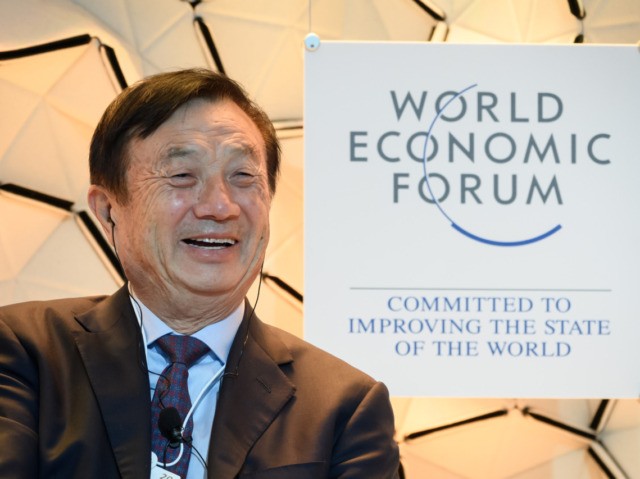Chinese tech giant Huawei is on course to get a role in developing the United Kingdom’s next-generation communications networks, despite repeated warnings over the potential dangers of spying that surrounds using the company’s technology for national infrastructure.
British civil servants have given the green-light to Huawei getting what is described as a limited or peripheral role in rolling out the 5G network in coming years according to reports, but the final decision rests in the hands of the UK national security council which will meet next week.
The decision comes despite repeated warnings over allowing Huawei to contribute hardware and software to national infrastructure projects, not least from the United States whose intelligence community believes that the company is a state-controlled entity, and that its equipment could be used for cyber espionage on an enormous scale. President Trump has previously voiced concerns that the United Kingdom should be “very careful from the standpoint of national security”.
Huawei denies the claims it is state-controlled.
A delegation of U.S. officials to London demonstrating evidence of Chinese government involvement are reported to have said it would be “nothing short of madness” to sign off on the company being involved. On giving Huawei and involvement in the project, no matter how little, they said: “It raises the question, why do any amount of business with people you don’t trust?”
Britain’s Financial Times reports civil servants met Wednesday and agreed Huawei could work on “the periphery of future 5G networks, rather than in the sensitive core”.
Whether Huawei is fit or not to participate in Britain’s 5G rollout has been a hot-button topic in the UK for some time. In 2018, then defence secretary Gavin Williamson spoke out against the leverage and access using Huawei equipment could offer the Chinese government, his own comments following others by the former head of Britain’s foreign intelligence agency.
Just five months later, Williamson was removed from his government post after being blamed for a leak of documents revealing Huwawei’s planned involvement in Britain’s 5G network. Williamson stridently denied being the source at the time.
Part of the problem faced by the United Kingdom is the limited number of companies worldwide capable of offering an alternative to Huawei at the breaking-edge of telecommunication technology. Sweden’s Ericsson and Finland’s Nokia are also offering 5G technology. Ultimately, no other company has been able to offer technology to the UK as cheap and advanced as China.
The decision by the unelected British civil servants has already appeared to impact progress on the coming UK-U.S. trade deal, as Trade Secretary Steven Mnuchin has indicated he will be raising his country’s concerns with his British counterparts at meetings over the weekend. The progression of a trade deal is essential to the British post-Brexit plan, as it will open new opportunities to UK businesses while simultaneously putting pressure on Europe to open up to a newly free Britain.
The growing dependence of national infrastructure on data networks, like the older 3G system that 5G is intended to replace, and the fragility of systems that could be disrupted by an unscrupulous actor with sufficient access, was illustrated when parts of the increasingly ‘smart’ city London ground to a halt in 2018. 32 Million mobile subscribers were left unconnected to data when top-level carrier O2’s network went down, and services that relied on being able to share data via mobile networks including public transport, public bicycle hire stations, and taxi firms, ceased to operate.
Although the outage was nationwide, the impacts were most keenly felt in London as commuters in the city were less self-reliant than others around the country less likely to depend on public transport and taxis.

COMMENTS
Please let us know if you're having issues with commenting.